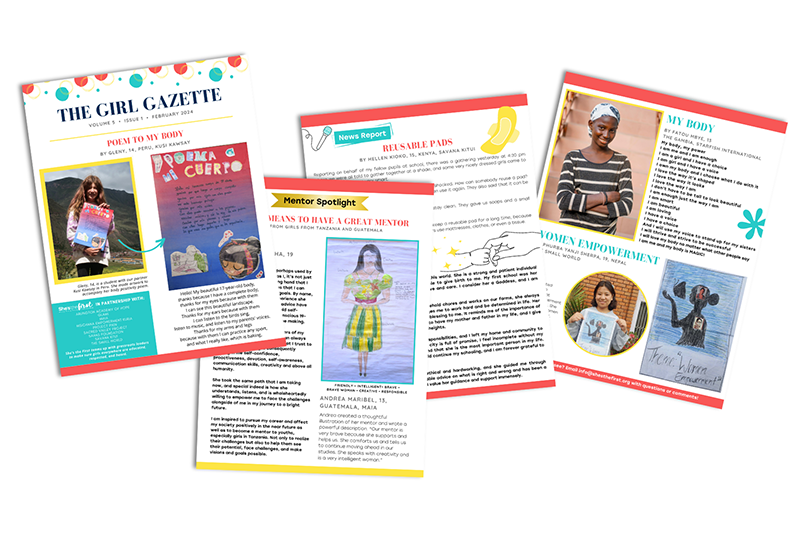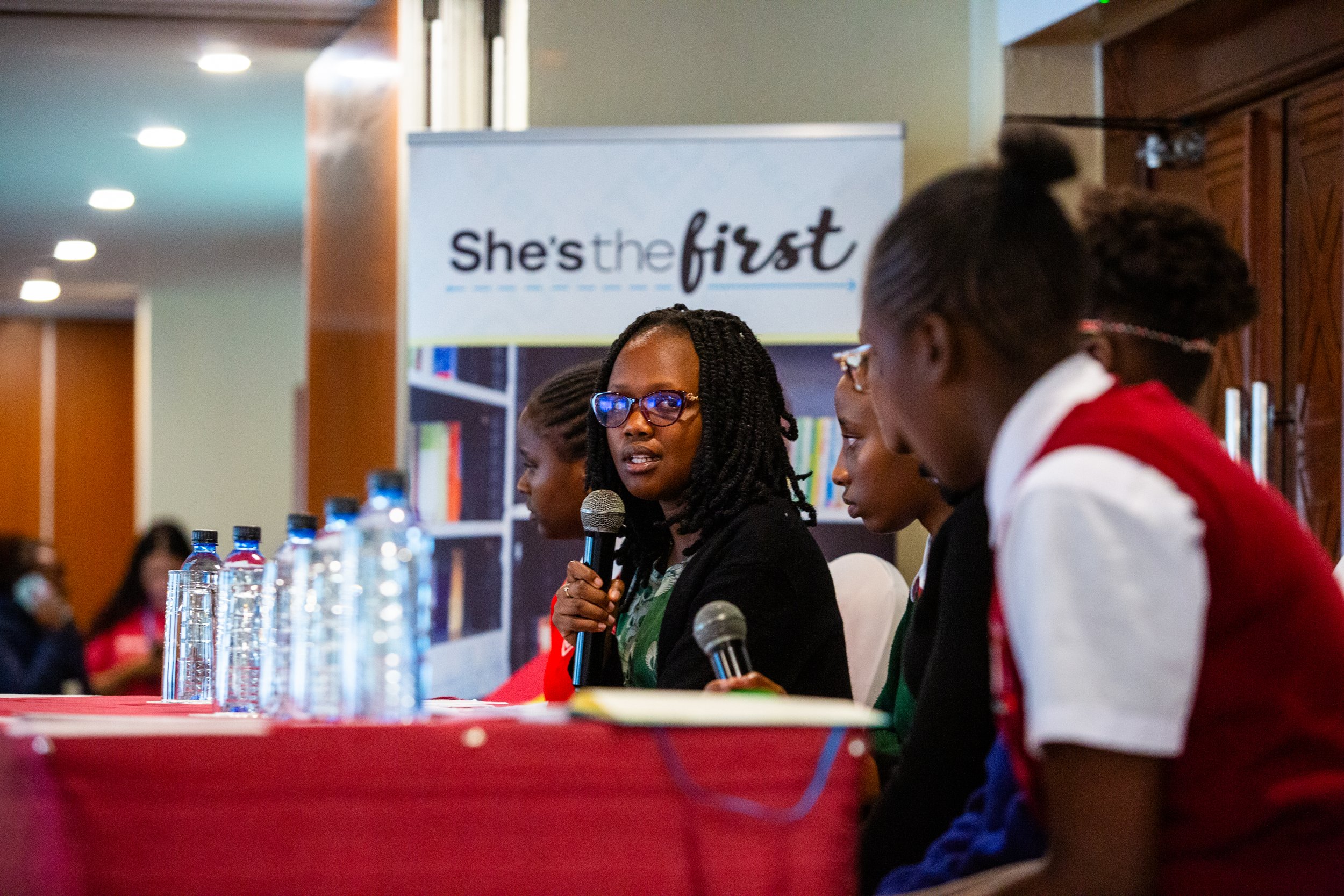Why do you need feminism? Challenging stereotypes about what it means to be feminist and connecting it to their personal lives, students at Clark High School’s She’s the First Chapter in Plano, Texas, crafted empowering posters answering this compelling question.
What Remote Learning Has Taught Me About Girls & COVID-19
Author: Anika Mukker, She’s the First Campus Community
I’m terrible with dates, but I’ll never forget March 13. That was the day my school announced that we would not be returning for four weeks due to the COVID-19 pandemic. Four weeks turned into seven months, and now I’m in 11th grade through distance learning.
Education has always been one of the most important parts of my life, and my love for learning was the driving factor for me getting involved with She’s the First. Nevertheless, adapting to virtual school has been challenging. Personally, having tangible projects helps me remain organized and engaged, and I value face-to-face interaction with teachers and peers. In fact, most of my closest friendships have all been built out of decade-long connections through school.
“Four weeks turned into seven months, and now I’m in 11th grade through distance learning.”
But, the pandemic has taught us is that we, as people, especially girls, are incredibly creative and resilient. Nowadays, I dedicate more time to planning out my routine and self-care while leveraging technology to maintain my connections and continue learning. I also try to participate as much as I can in online lectures -- asking questions, engaging in discussion, and putting a little more effort into connecting with my teachers.
However, COVID-19 and remote learning have also taught us that we cannot disregard the disproportionate impact of global crises on girls.
In April 2020, She’s the First published their Girls Can’t Wait report which states that over 750 million girls have been affected by the pandemic, and the Malala Fund projects 20 million more girls will not return to school when this is over, for a total of ~150 million girls out of school. A follow-up report published in September 2020 further details the severe impact—from steadily rising teenage pregnancy rates to increases in the number of girls working outside of their homes.
“For many, being taken out of school is more than losing out an education. It’s losing out on a safe space, a place to create dreams, and a network of support. ”
With schools being closed and students being forced to learn remotely, girls are separated from important connections with friends, teachers, and mentors as well as important programs. For many, being taken out of school is more than losing out an education. It’s losing out on a safe space, a place to create dreams, and a network of support.
All of this is coupled with the fact that the COVID-19 pandemic has exasperated the digital divide both on a professional and school level. In the same follow up report, community-based organizations also found that only 25% of girls have access to a tech device to aid in their learning.
With inequitable access to technology, girls' voices are quieted; they are unable to speak out on the issues that affect them, gain equal access to opportunities, and utilize necessary tools for their education. Right now, bridging this divide is more important than ever. Technology is an integral part of remote learning and provides a vital means for receiving an education even while schools are shut down.
“My computer, stable WiFi, and phone are the tools that have truly helped me succeed during this pandemic.”
As much as planning and organization have helped me with distance learning, simple things like my computer, stable WiFi, and phone are the tools that have truly helped me succeed during this pandemic. Without them, my questions would be left unanswered; I would not be able to take hold of opportunities in learning and advocacy.
So let our voices be heard: girls can’t wait. All girls have a right to an education, and we need to keep fighting until even a global pandemic cannot take that away.
Support the COVID-19 Response Fund to support girls’ most urgent needs through this pandemic, including remote access to education, hygiene kits, and more.
About Anika: Anika is a junior at Vista Del Lago High School in Folsom, California and the president/founder of her school’s She’s the First chapter. She’s extremely passionate about girls’ rights, especially when it comes to education and how girls lie at the intersection of so many different issues. Outside of STF, she’s involved in Model United Nations, as she aspires to study international relations in the future. In her spare time, she also loves to draw, write, listen to music, travel, and spend time with her loved ones.





